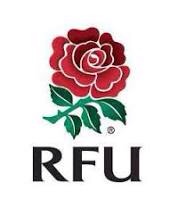LATEST ANTI-DOPING REPORT FOR RUGBY RELEASED
The fourth Anti-Doping Annual Report for rugby in England has been published on behalf of the Anti-Doping Advisory Group.
The group is responsible for advising on anti-doping policy for rugby in this country and is made up of key stakeholders, including: the RFU, Premiership Rugby, the Rugby Players’ Association and UK Anti-Doping.
The testing programme last season comprised 536 tests, taken in and out of competition, and included both targeted and random selections.
The report confirmed five positive results ranging from university to level 1 of rugby and one case of possession and trafficking at county level. Six additional cases from last season are on-going and not included within the report.
Separately, 481 tests were conducted as part of the RFU’s Illicit Drugs Programme, where four positive results were found. The cases concerned are treated confidentially with a ‘first strike’ fine and access to assessment, rehabilitation and counselling. 84% of all available players were tested at least once during the season. Education sessions were also delivered across all Premiership Rugby clubs last season.
It is recognised that young players face a number of pressures in life, including trying to forge careers in rugby. In light of this, the RFU and Leeds Beckett University have partnered on a research project to explore the use of performance and image enhancing substances in male adolescent players. Understanding those pressures will be central to this research and crucial to preventing and deterring doping at this level.
Recent cases in South Africa and England, where young players have tested positive for banned substances, underscore the importance of this research, which shows the RFU’s commitment to anti-doping. It is hoped the research will enable the development of a state-of-the-art evidence-based prevention programme across the community game.
Working in partnership with the IRB and UKAD, a new education strategy is also being drafted and aims to deliver a comprehensive programme of education initiatives for rugby across England. It is expected to launch following the new WADA Code in 2015. ‘Keep Rugby Clean’ and ‘100% me’ brands will continue to form a key component of the education programme.
The new WADA Code will represent the next level of the worldwide fight against doping in sport, defining how anti-doping testing and education programmes should be delivered.
Education is a key component of the current anti-doping programme and was delivered last season to a wide range of levels and age groups, including England squads, Aviva Premiership Rugby, Greene King IPA Championship and National League one clubs, regional academies, further education providers and schools.
The RFU’s anti-doping staff also presented at seminars for teachers, parents, coaches, team managers, medical practitioners and player agents. Further outreach campaigns have been delivered in partnership with UK Anti Doping’s 100% me brand, including taking the anti-doping message to the world’s largest schools rugby festival, the Rosslyn Park National Schools Sevens, which attracts 7,500 boys and girls aged 13 to 18.
Rob Andrew, RFU Professional Rugby Director and chair of the Anti-doping Advisory Group said: “As a sport we take our responsibilities in this area very seriously. The RFU continues to implement world-leading anti-doping, illicit drug and education programmes, using the best available resources and focussing on emerging trends. Last season has seen an increase in anti-doping rule violations, proving that smart detection and collaboration are key to a successful programme, together with increased targeted testing.
“Since taking over as chair of the anti-doping advisory group this year, I have been very impressed by how much emphasis our players, coaches and support staff place on keeping rugby union clean and free from both performance enhancing and illicit drugs. The commitment of our respective stakeholders is also to be commended. There is, of course, an emphasis on decreasing the number of anti-doping violations among young players with those outside the elite pathway continuing to be seen as high risk.
“A wider education programme and increased testing will be used to tackle this growing issue amongst younger players. It is, therefore, timely that a research project with Leeds Beckett University commenced this season to investigate attitudes towards the use of dietary supplements and banned substances among adolescent rugby players. The study’s results will help shape the way the RFU educates young players about the dangers of supplementation use and performance enhancing drugs.
“The RFU welcomes the tougher WADA sanctioning regime and we are in the process of educating players, coaches and support personnel of the changes contained within the new code.”
Richard Bryan, Rugby Director, RPA and member of the Anti-Doping Advisory Group: “This season’s results again provide no indication of any systemic doping amongst the senior elite players in England, which is highly encouraging for the integrity of the professional game at the highest level.
“The higher number of adverse findings in the wider game serves as a reminder that the education of players, at all levels of the sport, on the topic of anti-doping and illicit drugs is an on-going and crucial task. The RPA, together with the RFU and Premiership Rugby, remains wholly committed to protecting the game of rugby and the health of its players as well as reporting on doping in an open fashion.”
Phil Winstanley, Premiership Rugby’s Rugby Director and member of the Anti-Doping Advisory Group said: “Premiership Rugby welcomes the findings of this fourth annual Anti-Doping and Illicit Drugs Report. The game of rugby union in England continues to invest in this extremely important area and has shown that, with engagement and collaboration from the national governing body, the professional clubs and the players, it is possible to combat any threat. It is our firm belief that continued investment is required, particularly with young impressionable players who strive to become professional rugby players and that more education and further research, in addition to the testing programme, are essential components of this programme.”
Nicola Newman, Director of Communications & Education, UK Anti-Doping and UK Anti-Doping representative to the RFU Anti-Doping Advisory Group said: “The RFU is to be commended for its commitment to protecting rugby in England from doping and its open and transparent reporting mechanisms. UKAD has worked closely with the sport this year, reviewing our partnership strategy and agreed shared goals and priorities. A continual focus is on up and coming players as we recognise that ambitious young players can be vulnerable. Everyone in the sport of rugby and around them, schools, parents, clubs and medics, need to ensure players have the right support and the right skills to make good decisions.”
Related Posts
« SEKOPE KEPU TO PLAY MILESTONE 50th TEST FOR AUSTRALIA AGAINST FRANCE Watson wins first start for England against the Springboks »

















